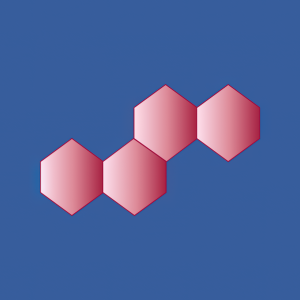Corcept Announces Positive Results From Open-Label Portion of Pivotal Phase 3 GRACE Trial in Patients With Cushing’s Syndrome
MENLO PARK, Calif., April 22, 2024 (GLOBE NEWSWIRE) -- Corcept Therapeutics Incorporated (NASDAQ: CORT), a commercial-stage company engaged in the discovery and development of medications to treat severe endocrinologic, oncologic, metabolic, and neurologic disorders by modulating the effects of the hormone cortisol, today announced positive results from the open-label portion of the pivotal Phase 3 GRACE trial of its proprietary selective cortisol modulator relacorilant in patients with all etiologies of endogenous Cushing’s syndrome (hypercortisolism).
GRACE has two parts. In the “open-label” phase, 152 patients with Cushing’s syndrome and either hypertension, hyperglycemia or both received relacorilant for 22 weeks. Patients who exhibited pre-specified improvements in either or both symptoms were given the opportunity to enter the trial’s randomized, double-blind withdrawal phase, in which half of the patients continued to receive relacorilant and half received placebo for 12 weeks.
GRACE’s primary endpoint is maintenance of blood pressure control in the “randomized withdrawal” phase, with maintenance of glycemic control as the key secondary endpoint. Other key secondary and exploratory endpoints in the randomized withdrawal phase include changes in weight, waist circumference, cognitive impairment and Cushing’s Quality of Life score. The data provided below are from GRACE’s open-label phase.
Open-Label Results
Patients in the open-label phase exhibited clinically meaningful and statistically significant improvements in hypertension, hyperglycemia and other key secondary and exploratory endpoints. The drug was well-tolerated, consistent with relacorilant’s known safety profile. Due to relacorilant’s unique mechanism of action, the observed efficacy was seen without increases in cortisol concentrations and relacorilant-induced hypokalemia. In addition, no cases of relacorilant-induced endometrial hypertrophy with or without vaginal bleeding were seen, nor were there any instances of adrenal insufficiency or QT prolongation (independently confirmed).
“These open-label results are compelling, and they provide important information about the treatment of hypercortisolism,” said Richard Auchus, MD, PhD, Professor of Internal Medicine, Division of Metabolism, Endocrinology & Diabetes at the University of Michigan and Chief of the Endocrinology & Metabolism Section at the Ann Arbor VA Medical Center. “Patients showed marked improvement across a broad range of signs and symptoms, without significant safety burden. Due to relacorilant’s unique mechanism of action, we are not observing other toxicities seen with current therapies, which positions relacorilant to potentially become a new standard of care for patients with this disease.”
“These data improve on the results we observed in our Phase 2 study,” said Bill Guyer, PharmD, Corcept’s Chief Development Officer. “Cushing’s syndrome has many signs and symptoms, which is why it is so important that patients in GRACE’s open-label phase exhibited improvements across a broad range of clinically meaningful endpoints. We expect to build on these results in the trial’s randomized withdrawal phase. We plan to present data from the open-label and randomized withdrawal phases at a medical conference in June and remain on track to submit our NDA this quarter.”
Hypertension
Rapid and sustained improvements in systolic blood pressure (SBP) and diastolic blood pressure (DBP) were observed in all patients with hypertension, with an improvement in mean SBP of 7.9 mm Hg and mean DBP of 5.4 mm Hg at 22 weeks (p-values: <0.0001). During the open-label phase, 63 percent of patients with hypertension met the study’s response criteria. For the patients that entered the randomized withdrawal phase, the observed improvements in hypertension were even greater, with improvements in mean SBP of 12.6 mm Hg and mean DBP of 8.3 mm Hg at 22 weeks (p-values: <0.0001). To ensure accuracy, hypertension was measured by 24-hour ambulatory blood pressure monitoring (ABPM). See Figures 1 and 2.


Hyperglycemia
Glucose metabolism was measured by several diagnostic tests, including the oral glucose tolerance test (glucose area under the curve or AUCglucose), hemoglobin A1C (HbA1c) and fasting glucose.
Clinically meaningful and statistically significant improvements in glucose metabolism were observed for all patients with hyperglycemia, which includes patients with diabetes and impaired glucose tolerance (pre-diabetes). Data showed improvements in mean AUCglucose of 3.3 h*mmol/L, mean HbA1c of 0.3 percent and mean fasting glucose of 12.4 mg/dL at 22 weeks (p-values: <0.0001, 0.03, 0.03, respectively). During the open-label phase, 50 percent of patients with hyperglycemia met the study’s response criteria. For the patients that entered the randomized withdrawal phase, the observed improvements in hyperglycemia were even greater, with improvements in mean AUCglucose of 6.2 h*mmol/L, mean HbA1c of 0.7 percent and mean fasting glucose of 25.2 mg/dL at 22 weeks (p-values: <0.0001, <0.0001, 0.006, respectively). See Figures 3 and 4.


Other Cushing’s Syndrome Symptoms
Statistically significant improvements in other symptoms of Cushing’s syndrome, including body weight, waist circumference, cognition (as assessed by the Trail Making Test) and Cushing’s Quality of Life score, were observed in all patients during the open-label phase of the study (all p-values: <0.0001).
Safety
Relacorilant was well tolerated. The most common adverse events were mild-to-moderate nausea, edema, pain in extremities and back, and fatigue, which are symptoms consistent with the “cortisol withdrawal” many patients experience following surgery or initiation of medical therapy to treat hypercortisolism. There were no increases in cortisol concentrations and relacorilant-induced hypokalemia. In addition, no cases of relacorilant-induced endometrial hypertrophy with or without vaginal bleeding, adrenal insufficiency or QT prolongation (independently confirmed) were reported.
About Relacorilant
Relacorilant is a selective cortisol modulator that binds to the glucocorticoid receptor, but does not bind to the body's other hormone receptors. Corcept is studying relacorilant in a variety of serious disorders, including ovarian, adrenal and prostate cancer and Cushing’s syndrome. Relacorilant is proprietary to Corcept and is protected by composition of matter, method of use and other patents. Relacorilant has orphan drug designation in the United States and the European Union for the treatment of Cushing’s syndrome.
About Corcept Therapeutics
For over 25 years, Corcept’s focus on cortisol modulation and its potential to treat patients across a wide variety of serious disorders has led to the discovery of more than 1,000 proprietary selective cortisol modulators. Corcept’s advanced clinical trials are being conducted in patients with hypercortisolism, solid tumors, amyotrophic lateral sclerosis (ALS) and liver disease (NASH). In February 2012, the company introduced Korlym®, the first medication approved by the U.S. Food and Drug Administration for the treatment of patients with Cushing’s syndrome. Corcept is headquartered in Menlo Park, California. For more information, visit Corcept.com.
Forward-Looking Statements
Statements in this press release, other than statements of historical fact, are forward-looking statements based on our current plans and expectations that are subject to risks and uncertainties that might cause our actual results to differ materially from those such statements express or imply. These risks and uncertainties include, but are not limited to, our ability to operate our business; risks related to the study and development of Korlym as well as relacorilant, miricorilant, dazucorilant and our other product candidates, including their clinical attributes, regulatory approvals, mandates, oversight and other requirements; and the scope and protective power of our intellectual property. These and other risks are set forth in our SEC filings, which are available at our website and the SEC’s website.
In this press release, forward-looking statements include those concerning: relacorilant, including its clinical attributes and potential to become a treatment for patients with Cushing’s syndrome or any other disorder, the conduct, pace and outcome of GRACE, including its randomized withdrawal phase, regulatory oversight of relacorilant, timing of relacorilant’s NDA submission and its prospects for approval by the FDA and other authorities, relacorilant’s acceptance and use by physicians and patients and its commercial prospects, and the scope and protective power of relacorilant’s orphan drug designation and our intellectual property. We disclaim any intention or duty to update forward-looking statements made in this press release.
CONTACT
Investor inquiries:
ir@corcept.com
Media inquiries:
communications@corcept.com
www.corcept.com
Photos accompanying this announcement are available at:
https://www.globenewswire.com/NewsRoom/AttachmentNg/2f9e4e2a-2040-4584-8eba-2772419821e5
https://www.globenewswire.com/NewsRoom/AttachmentNg/5239830e-f4d9-43b4-a5d1-6f36d5efe615
https://www.globenewswire.com/NewsRoom/AttachmentNg/1a9a922c-0049-430e-93e9-d8522f224e8a
https://www.globenewswire.com/NewsRoom/AttachmentNg/f0c4cf20-f155-4af0-9031-e38c27a08784








